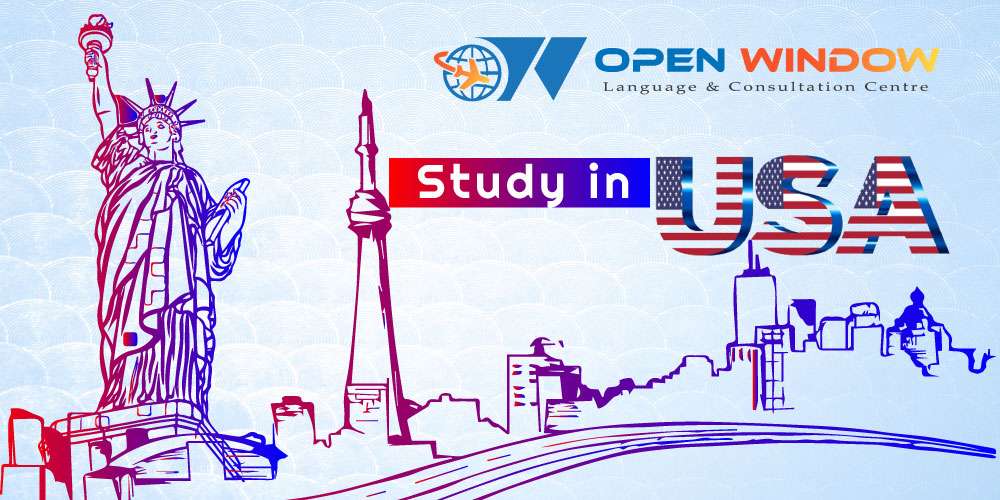Study in South Korea
Study in South Korea, officially known as the Republic of Korea, is a country in East Asia with a rich cultural heritage and a rapidly growing economy. The country is also a popular destination for international students seeking high-quality education and unique cultural experiences.
South Korea’s education system is highly regarded globally, with a focus on science and technology, engineering, and innovation. The country has several top-ranked universities that offer programs in various fields, including business, engineering, medicine, humanities, and social sciences. Many of these programs are taught in English, making them accessible to international students.
South Korea’s universities provide a rigorous academic environment that encourages students to develop critical thinking and problem-solving skills. Students have access to state-of-the-art facilities and research opportunities, and there is a strong emphasis on practical learning and real-world applications.
In addition to its academic offerings, South Korea offers a unique cultural experience for international students. South Korea has a rich and diverse cultural heritage, influenced by its history and various ethnic communities. Students can explore South Korea’s museums, art galleries, and historic landmarks, or participate in traditional festivals and events.
South Korea is also known for its vibrant and dynamic economy, offering students access to exciting career opportunities and internships. South Korea is home to several multinational corporations, including Samsung, Hyundai, LG, and SK Group, among others.
Overall, studying in South Korea is a unique and enriching experience, offering students an opportunity to gain a high-quality education in a dynamic and innovative environment, while exploring a fascinating culture and natural environment.
Why study in South Korea?

1. Affordable tuition fees
A cool thing about South Korea is that it doesn’t differentiate between local and international students. Both categories pay the same fees. And these fees aren’t even that high, especially when compared with how much you’d pay in the US, Canada, or Australia.
For most Bachelor’s and Master’s programmes, costs start at 1,000–1,500 USD and can reach 21,000 USD per semester. This may not sound exactly cheap, but remember that at American universities tuition can easily jump over 50,000 USD per year.
Engineering, Medicine, and Humanities are often the most expensive academic disciplines.
2. Plenty of scholarships are available
Many South Korean universities offer scholarships to international students. The requirements for each scholarship are different, but many such prizes are often awarded based on your previous GPA or academic performance.
3. The education system is excellent
South Korea prides itself with some of the best universities in both Asia and the entire world. Its schools are often ranked among the best higher education institutions, and South Korean students occupy one of the top 3 places in the PISA (Program for International Student Assessment) Survey Results.
4. South Korea is an Information and Communication Technologies (ICT) leader
When it comes to ICT, few countries can match the impressive progress and contribution of big South Korean companies like Samsung, LG, or SK Hynix. It is also an important player in the automobile industry, thanks to Hyundai and Kia.
5. Explore the beauty of South Korean culture and history
While studying and living in South Korea, you can discover its unique culture and history by visiting amazing monuments and sites, such as: the Gyeongbokgung Palace, the N Seoul Tower, the Bukchon Hanok Village, the Lotte World adventure and water park, the Nami Island, Everland, Seongsan Ilchulbong, etc.
How to Apply in South Korea
If you’ve decided to study a Master’s degree at a university in South Korea, you will have to gather the right documents to prove that you fit the university requirements. Provide complete personal information, previous qualifications, financial information, and a personal statement.
What documents do I need to provide to apply in South Korea?
To apply to a university in South Korea you will likely be asked to provide some of the following documents:
- birth certificate;
- recent photos;
- your passport or national identity card;
- one or more reference letters from past employers or teachers;
- copies of past diplomas or certificates, including your graduated Bachelor’s degree;
- academic transcripts;
- letter of intent;
- Curriculum Vitae;
- Some form of proof that you can support your stay in the country during your studies.
Depending on the subject or specialization of your chosen Master’s, you might also be asked to provide scores for additional tests like the GRE, GMAT or LSAT. Check if your programme requires any of these, or others.
The list of documents depends on the specific requirements of universities in South Korea so you might be asked to include additional documents. It’s also likely you’ll have to provide official English translations of your documents, or translations in the local language.
Prove your English skills

Because you’ll study an international degree in English, you’ll have to present a language certificate. Some popular options for international students are IELTS, TOEFL or C1 Advanced language certificates. You’ll have to meet a minimum language score set by the university, and your test scores shouldn’t be older than 1-2 years. If you don’t meet the minimum language requirements, you will have to improve your skills and scores by taking an English preparation course.
Application deadlines for South Korea
The deadlines for applying to a Master’s in South Korea are usually during summer (June-July), or in winter (January-February). Keep in mind that some universities don’t have application deadlines, which means you can apply whenever you are ready.
To avoid delays or missed deadlines send your required documents with plenty of time in advance.
Living in South Korea

Let’s take a closer look at tuition and living expenses in South Korea:
Tuition fees
Like most countries around the world, South Korea separates their universities into public (government-backed) and private universities.
Yet, one of the unique things about South Korea is that they don’t charge a different price to international students; instead, foreign students have the same fees as their local South Korean classmates.
Tuition fees at public universities
- 1,600–10,800 USD/semester for Bachelor’s degrees
- 1,100–20,900 USD/semester for Master’s degrees
Engineering and Medicine degrees are usually the most expensive.
International students who enrol at private universities should expect to pay higher tuition fees.
Cost of living in South Korea
South Korea can be a rather expensive place for your studies with average living costs of 900–1,400 USD/month. But, you can find plenty of ways to save money and budget properly while you’re there.
Here is a breakdown of costs in South Korea:
- accommodation (university dormitory): 600–1,400 USD/semester
- accommodation (private rent): 300–400 USD/month plus the security deposit (3,000–5,000 USD)
- food and groceries: 300–500 USD/month
- medical insurance: 20 USD/month
- monthly transport pass (train, metro, bus): 40 USD
- 3-course meal for 2 at a midrange restaurant: 34 USD
- Milk: 2.10 USD
- Loaf of bread: 2.45 USD
- Cappuccino: 3.80 USD
Work While Study in South Korea
International students are allowed to work part-time while studying in South Korea, subject to certain conditions. Here are some important things to keep in mind:
- Work permits: International students in South Korea need to obtain a work permit before they can work part-time. The work permit is issued by the Ministry of Justice and can be obtained through the student’s university.
- Working hours: International students in South Korea can work up to 20 hours per week during the semester and full-time during breaks (e.g., summer and winter vacations).
- Types of jobs: International students can work in various fields, including retail, hospitality, and tutoring. It’s also possible to find part-time jobs on campus, such as research assistants or library assistants.
- Minimum wage: South Korea has a minimum wage that applies to all workers, including international students. As of January 2023, the minimum wage in South Korea is 9,160 KRW per hour (approximately 7.50 USD).
- Taxes: International students must pay income tax on their earnings. However, some tax exemptions may apply depending on the amount earned and the duration of the job.
It’s important to note that international students must prioritize their studies and ensure that their part-time work does not negatively impact their academic performance. Working too many hours can also have negative effects on their physical and mental health.
Overall, working part-time while studying in South Korea can provide students with an opportunity to gain work experience, earn extra income, and immerse themselves in the local culture. However, it’s important to comply with all legal requirements and to balance work and studies effectively.
South Korea At a Glance
| Course Duration | Intake | Application Fee | Requirements |
| Language Proficiency | Tution Fee (Yearly) | Living Cost (Yearly) | Visa Application |
| Air Ticket | Processing Time | Part Time Work | Post Study Work Permit |



